The University Center for Excellence in Developmental Disabilities (UCEDD) provides programs to support the full inclusion and self-determination of people with developmental disabilities and their families.
List of All Programs Services Research & Evaluation Pre-Service Training Outreach
This is an accordion element with a series of buttons that open and close related content panels.
Augmentative and Alternative Communication (AAC) Program
Augmentative and Alternative Communication (AAC) Program
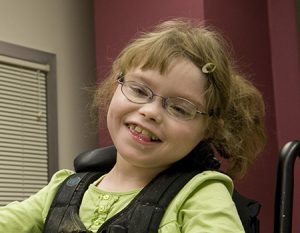 The AAC Program impacts individuals across the lifespan who are experiencing significant communication difficulties. This program provides the infrastructure needed to test new approaches to practice as well as providing a model direct service for training future and current professionals. It includes all four UCEDD core functions (service, training, research and information dissemination) in its program design. The AAC program includes the AAC-Partnership, Communication Aids & Systems Clinic (CASC), Communications Development Program (CDP), and ECHO-AAC.
The AAC Program impacts individuals across the lifespan who are experiencing significant communication difficulties. This program provides the infrastructure needed to test new approaches to practice as well as providing a model direct service for training future and current professionals. It includes all four UCEDD core functions (service, training, research and information dissemination) in its program design. The AAC program includes the AAC-Partnership, Communication Aids & Systems Clinic (CASC), Communications Development Program (CDP), and ECHO-AAC.
- AAC Clinic
Communication Aids & Systems Clinic (CASC) - AAC Education
ECHO-AAC - AAC Outreach Services
Augmentative and Alternative Communication (AAC) Partnership Program
Communication Development Program (CDP)
Contact:
Jennifer Seale, PhD, CCC-SLP
Email: jseale@wisc.edu
Website: Augmentative and Alternative Communication (AAC) Program
Autism Treatment Programs
Autism Treatment Programs (ATP)

The Waisman Center Autism Treatment Programs (ATP), in partnership with UW Health, offer focused behavioral treatment to individuals with autism and their families. Parent Coaching is the key service. Parents learn and practice strategies to teach alternatives to challenging behavior, teach skills for daily living and to strategies to enhance family relationships. Individual treatment is offered for some individuals supplementary to Parent Coaching. Individual treatment provides additional practice on select skills that are then carried over to family interactions and activities. The treatment approach is founded on the principles of Applied Behavior Analysis (ABA), and additional evidence-based strategies. In the Starting Together Program for children ages 2-4 years, parent coaching and individual treatment are provided during everyday play activities and daily routines. Teaching and support strategies are guided by The Early Start Denver Model (ESDM). In the Growing Together Program (ages 5-26) parents join their child, teen or young adult in session to work toward goals that support communication, independence and life skills. Older teens and young adults (ages 18–26) participate in group psychoeducation focused on adult relationships, life transitions, and relationships with family and friends into adulthood. The teens and young adults make a plan for engaging their families to share strategies and discuss supports to maintain skills learned.
Contact:
Molly Murphy
608-890-3622
Email: memurph3@waisman.wisc.edu
Website: Autism Treatment Programs (ATP)
Children's Resource Center-South
Children’s Resource Center-South
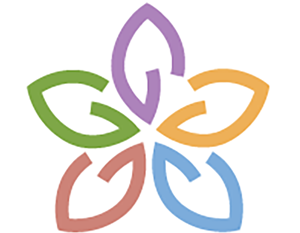
The Southern Regional Center for CYSHCN, funded by the State Maternal Child Health block grant, benefits families with CYSHCN and the providers who support them through providing information, referral and follow up services; promoting a parent-to-parent support network and family leadership development; and increasing local capacity of community-based systems of support.
Contact:
Meredith Vitaioli, CRC Director
(608) 263-2004
meredith.vitaioli@wisc.edu
Tim Markle – Outreach & Training Manager
(608) 262-8033
Email: tmarkle@wisc.edu
Website: Children’s Resource Center-South
Community Solutions for Health Equity
Community Solutions for Health Equity

Community Solutions for Health Equity is a program of the Robert Wood Johnson Foundation (RWJF) focused on elevating the voices of communities of color and other communities left out of discussions when local health care systems in the United States are creating policy. The national Community Solutions for Health Equity program attempts to address root causes of racism and bias directly by supporting communities to identify a problem that negatively affects the, envision solutions, and partner with health care systems to co-create and implement solutions. This project provides technical assistance and support to a parent-led non-profit community organization, Padres e Hijos en Accion, to lead a community-based effort to make local health care systems more responsive to the needs of Latino families of children with developmental disabilities and other special health care needs in Dane County, through elevating the voices, stories, and priorities of the people who hold the solutions.
Contact:
Gail Chödrön
608-890-0145
Email: chodron@wisc.edu
Website: N/A
Community TIES
Community TIES
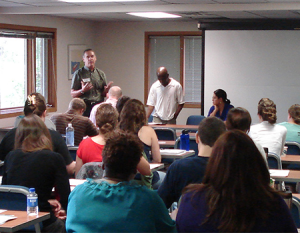
Community TIES a community-based, behavior support program serving children/families, adolescents, and adults with intellectual and developmental disabilities (IDD) living in our Dane County community. Many individuals served by TIES have co-occurring mental health conditions.
Contact:
Josh Lapin
608-890-4839
lapin@waisman.wisc.edu
Website: Community TIES
Community Training
Community Training

Community Training provides practical trainings to caregivers, provider agencies, families, individuals with disabilities, program administrators/supervisors, and community members interested in learning more about related topics in the field of Intellectual/ Developmental Disabilities. Many trainings are developed and presented by COW staff who have extensive experience and knowledge in supporting people with disabilities to promote full community inclusion.
Contact:
Michael Truman
608- 516-8410
Email: mltruman@wisc.edu
Website: Community Training
Connecting Families Program
Connecting Families Program
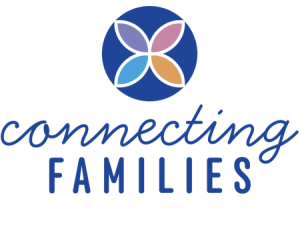
Connecting Families is a network of peer support for families of children and youth with special health care needs in Wisconsin.
This network works alongside the existing supports in the state to help families create connections, overcome isolation, share lived experiences, and learn from one another. Specifically, Connecting Families:
- Nurtures the development of new peer support opportunities that are designed to address unmet needs in the community.
- Sustains a multi-faceted approach to peer support through the creation of innovative group opportunities, facilitation of one-to-one connections, and referrals to other relevant groups and organizations.
- Recruits Support Parents with lived experience to offer emotional support, empathy, guidance, and information to other caregivers who are navigating diagnoses and systems of care.
- Equips this team of Support Parents through evidence-informed training, coaching, resource sharing, and a peer-to-peer learning community.
Contact:
Meredith Vitaioli
(608) 263-2004
meredith.vitaioli@wisc.edu
Connecting Families
Crisis Response
Crisis Response

Crisis Response is a coordinated, community-based, approach to crisis prevention and response for Dane County adults with intellectual and developmental disabilities (IDD) experiencing acute behavioral health crises. Crisis Response is a collaborative effort between Community TIES, Dane County Human Services, and Responsive Solutions Inc.
Contact:
Axel Junker
608.265.9428
junker@waisman.wisc.edu
Website: Crisis Response
Genetic Systems Integration Hub-Wisconsin
Genetics Systems Integration Hub-Wisconsin

This project provides a central source for the exchange of information and resources related to maternal child health (MCH) genetics services and programs in WI, maintains the Genetics in Wisconsin website, and facilitates the delivery and evaluation of genetics education for healthcare providers in Wisconsin.
Contact:
Sara Zoran, MS
(608) 262-0182
Email: zoran@wisc.edu
Website: Genetics in Wisconsin
Health Transition Wisconsin
Health Transition Wisconsin

The Youth Health Transition Initiative provides Wisconsin’s youth, family members, providers, and other community collaborators with information on the movement from the pediatric world to adult health care. Tools, materials, and resources are available to help teens, families, and health care systems in the health care transition process.
Contact:
Tim Markle
(608) 262-8033
Email: tmarkle@wisc.edu
Website: Health Transition Wisconsin
Leadership Education in Neurodevelopmental and Related Disabilities (LEND)
Leadership Education in Neurodevelopmental and Related Disabilities (LEND)

The WI LEND Program provides inter-professional leadership education in neurodevelopmental disabilities to graduate students and community members, including professionals, family members and individuals with disabilities. Didactic and experiential learning focuses on systems of care, public health and policy, interdisciplinary family-centered practice, research, evaluation and dissemination. The LEND program recruits trainees and provides interdisciplinary leadership training in collaboration with academic programs at UW-Madison and UW-Milwaukee, including the CASTLE Project (Clinical Assessment, Screening, Treatment and Leadership in Evidence-based practices for Children with Autism, 2019-2024), the Masters in Genetic Counseling Studies program located at the Waisman Center, and other Maternal and Child Health-funded training programs in Wisconsin and regionally. Faculty and trainees provide outreach education, technical assistance and direct service to improve the health of children with Autism and other Developmental Disabilities.
Contact:
Gail Chödrön
608-890-0145
Email: chodron@wisc.edu
Website: WI LEND Program
LEND Outcomes Study
LEND Outcomes Study
 The primary tool currently used to evaluate the impact of LEND training is the National Information and Reporting System (NIRS) Graduate Long-term Trainee Follow-up Survey, hereafter referred to as the NIRS Graduate Survey. The 14 question NIRS Graduate Survey is administered online 2, 5, and 10 years after completion of LEND training for all LEND graduates. In this study designed to measure the impact of LEND training using the NIRS Graduate Survey, LEND trainees were recruited to participate in the study to and asked to identify a comparison peer that is receiving similar graduate training, but is not participating in LEND long term training program. Survey responses regarding leadership skills and career attributes are being compared for former trainees and non-trainee cohorts up to 10 years post-graduation from the LEND program.
The primary tool currently used to evaluate the impact of LEND training is the National Information and Reporting System (NIRS) Graduate Long-term Trainee Follow-up Survey, hereafter referred to as the NIRS Graduate Survey. The 14 question NIRS Graduate Survey is administered online 2, 5, and 10 years after completion of LEND training for all LEND graduates. In this study designed to measure the impact of LEND training using the NIRS Graduate Survey, LEND trainees were recruited to participate in the study to and asked to identify a comparison peer that is receiving similar graduate training, but is not participating in LEND long term training program. Survey responses regarding leadership skills and career attributes are being compared for former trainees and non-trainee cohorts up to 10 years post-graduation from the LEND program.
Contact:
Emily Hickey
Email: ejhickey2@wisc.edu
Website: N/A
Longitudinal Study of Wisconsin Adult Long Term Care
Longitudinal Study of Wisconsin Adult Long Term Care
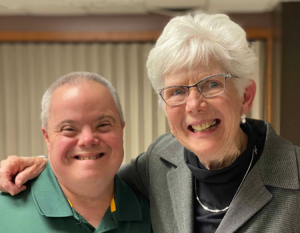
The purpose of this study is to understand changes over time in services and quality of life for individuals with intellectual and developmental disabilities who receive adult long term care supports in the state of Wisconsin. Family members and individuals with IDD will complete an online survey once a year for five consecutive years during the study.
Contact:
Leann Smith DaWalt
608-890-1390
Email: lesmith2@wisc.edu
Website: Longitudinal Study of Wisconsin Adult Long Term Care
Project ECHO
Project ECHO ®
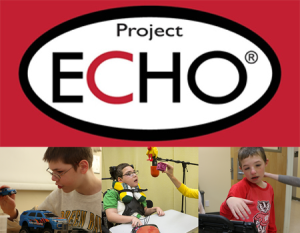
Project ECHO ® is a lifelong learning and guided practice model that is designed to create knowledge-sharing networks. Waisman Center has ECHOs in multiple areas for different target audiences such as AAC users and their families, primary care providers, speech-language pathologists, teachers, occupational therapists, and social workers.
Find if one of our ECHO projects is right for you: https://www.waisman.wisc.edu/echo/.
Research Engagement with People with Intellectual and Developmental Disabilities
Research Engagement with People with Intellectual and Developmental Disabilities

This new grant builds on earlier collaboration with the Special Olympics Health Communities Program that incorporated people with IDD as co-researchers. In this new project, the investigators will create a Toolkit to support the engagement of people with IDD in the development of research. The Toolkit will be the first of its kind to provide an accessible, structured process to engage people with IDD and related stakeholders as partners in the research enterprise.
Contact:
Karla Ausderau
608-262-0653
Email: kausderau@wisc.edu
Website: The Ausderau Lab
Wisconsin Study to Explore Early Development in Autism (SEED)
The Study to Explore Early Development (SEED)
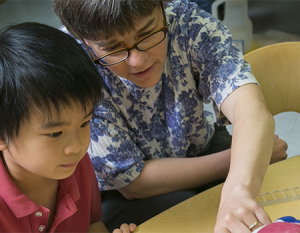
SEED is a nationwide study of autism spectrum disorder and other developmental disabilities. In collaboration with the Centers for Disease Control and Prevention, Wisconsin SEED is now evaluating the impact of COVID-19 on families with young children. This new research will help highlight the impact of disruptions in services (including but not limited to intensive behavioral therapies in children with autism) on long-term health outcomes.
Contact:
Maureen Durkin, PhD
608-263-7507
Email: mdurkin@wisc.edu
Website: WI SEED
TIES Clinic
TIES Clinic

The TIES Clinic provides psychiatric care and consultation to Dane County residents with intellectual and developmental disabilities who are unable to obtain psychiatric care from other providers due to financial situation, behavioral issues, or medical complexity. Patients seen in the TIES clinic are also supported by the Community TIES Program.
Contact:
Joanne Law
608-890-2845
Joanne.law@wisc.edu
Website: TIES Clinic
Waisman/UW Health Specialty Clinics
Waisman Center/UW Health Specialty Clinics
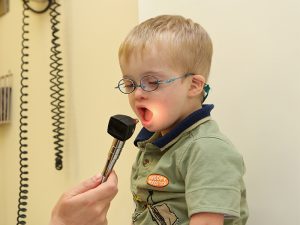 The clinics provide specialized health care services for individuals with developmental disabilities and their families. The clinics include: Autism and DD, Cerebral Palsy, Medical Genetics, Newborn Follow- up, Down syndrome, Neuromotor, Pediatric Brain Care, Biochemical Genetics, and Bone Dysplasia. All clinics offer diagnostic and assessment services, and a few clinics provide ongoing treatment and intervention.
The clinics provide specialized health care services for individuals with developmental disabilities and their families. The clinics include: Autism and DD, Cerebral Palsy, Medical Genetics, Newborn Follow- up, Down syndrome, Neuromotor, Pediatric Brain Care, Biochemical Genetics, and Bone Dysplasia. All clinics offer diagnostic and assessment services, and a few clinics provide ongoing treatment and intervention.
Contact:
Paola Perez, MSSW
Clinics Operations Manager
608-890-4495
Email: pperez@waisman.wisc.edu
Website: Waisman Center Clinics
Waisman Early Childhood Program (WECP)
Waisman Early Childhood Program
 Waisman Early Childhood Program (WECP) is a center based early childhood program that is meeting the needs of a developmentally diverse group of children ages 1 through 6. Approximately two-thirds are developing typically, and one third may have a special education need.
Waisman Early Childhood Program (WECP) is a center based early childhood program that is meeting the needs of a developmentally diverse group of children ages 1 through 6. Approximately two-thirds are developing typically, and one third may have a special education need.
Contact:
Teresa Hoveland
Director, WECP
608-265-9852
Email: thoveland@wisc.edu
Website: Waisman Early Childhood Program (WECP)
Waisman Resource Line
Waisman Resource Line

The Waisman Resource Line is an internal mechanism to disseminate information about Wisconsin services and provide assistance to individuals with intellectual and developmental disabilities and their families as they participate in Waisman Center research, services and training.
Contact:
Lynn Hrabik
920- 833-0051
Email: hrabik@wisc.edu
Website: N/A
WIN - Wellness Inclusion Nursing
Wellness Inclusion Nursing (WIN)
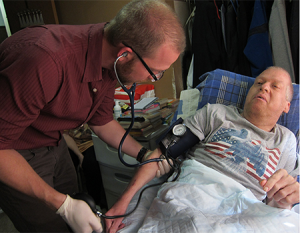
Wellness Inclusion Nursing (WIN) Program nurses work with individuals with IDD and complex health care needs living in the community. WIN nurses partner with the person, their families, caregivers, and health care providers. WIN services focus on restoring, maintaining, and promoting maximal health and independence.
Contact:
Sherry Schultz
608-535-0051
sherry.schultz@wisc.edu
Website: Wellness Inclusion Nursing (WIN)
Wisconsin Congenital Disorders Program/Newborn Screening Program
Wisconsin Congenital Disorders Program/Newborn Screening Program
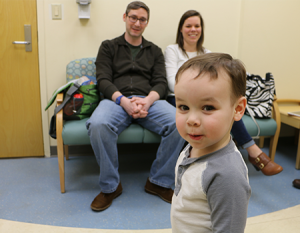
Infants who test positive for a genetic metabolic condition are seen in the Biochemical Genetics Clinic at the Waisman Center. The majority of these conditions are treated with nutrition and infants receive comprehensive care from a team including the following clinicians: metabolic physicians, nurse practitioners, dietitians, genetic counselors and nurses. The Biochemical Genetics Clinic follows individuals from infancy through adulthood to promote lifelong treatment of metabolic disorders for the best outcome.
Contact:
Mary Marcus, MS, RDN, CSP, CD
(608) 263-9389
Email: mmarcus1@wisc.edu
Website: N/A
Wisconsin Integrated Transition Implementation
Wisconsin Integrated Transition Implementation
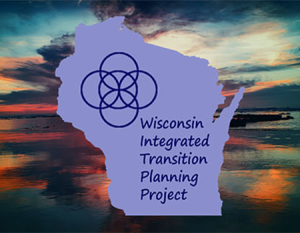
This three-year project funded by the Administration for Community Living will support the Wisconsin Transition Planning Coalition of engaged stakeholders with lived and professional experience to implement successful transitions to community living for Wisconsin youth with intellectual and developmental disabilities (ID/DD). The goal of the project is for families and transition-age youth with ID/DD in medically underserved Wisconsin communities to receive relevant information and support for Integrated Transition Planning (ITP) by the time the youth turns eighteen years of age. ITP includes integrating planning for health, employment and post-secondary education transitions.
Contact:
Lynn Hrabik
920- 833-0051
Email: hrabik@wisc.edu
Website: Wisconsin Integrated Transition Implementation
Wisconsin Surveillance of Autism and Other DD (WISADDS)
Wisconsin Surveillance of Autism and Other DD System
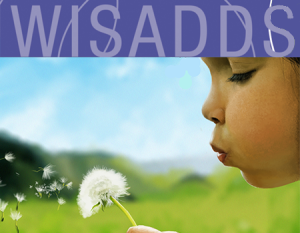 This is a multiple source investigation to determine and monitor the number of eight year-old children in the population with an autism spectrum disorder and/or intellectual disability. The Wisconsin study is also investigating cerebral palsy. This is a joint undertaking with CDC and the protocol is being implemented in several other states in the nation.
This is a multiple source investigation to determine and monitor the number of eight year-old children in the population with an autism spectrum disorder and/or intellectual disability. The Wisconsin study is also investigating cerebral palsy. This is a joint undertaking with CDC and the protocol is being implemented in several other states in the nation.
Contact:
Maureen Durkin, PhD
608-263-7507
Email: mdurkin@wisc.edu
Website: Wisconsin Surveillance of Autism and Other DD
